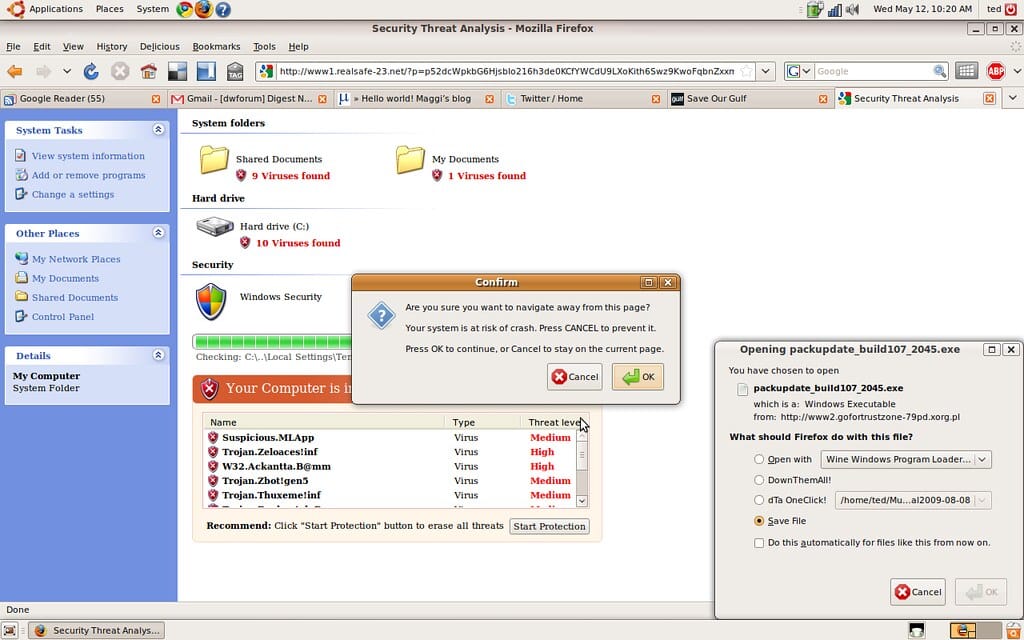Self-Replicating Worm Infiltrates Hundreds of NPM Packages, Even Hitting CrowdStrike
A sophisticated self-replicating worm has compromised several hundred packages on the Node Package Manager (NPM) repository, including packages associated with cybersecurity giant CrowdStrike, highlighting critical vulnerabilities in the software supply chain that millions of developers rely on daily.
The Attack Spreads Like Wildfire
Security researchers discovered the malicious worm propagating through NPM packages in what appears to be one of the most extensive supply chain attacks targeting the JavaScript ecosystem to date. The worm demonstrated an alarming ability to replicate itself across package dependencies, creating a cascade effect that amplified its reach far beyond its initial targets.
The attack specifically targeted packages with high download volumes and extensive dependency chains, maximizing its potential impact across the developer community. Among the compromised packages were several associated with CrowdStrike, the same company that experienced a global outage earlier this year affecting airlines, banks, and critical infrastructure worldwide.
How the Worm Operates
The malicious code embedded itself within legitimate package updates, making detection particularly challenging. Once installed, the worm would:
- Self-replicate across project dependencies
- Harvest sensitive data from development environments
- Establish persistent backdoors for future access
- Masquerade as legitimate functionality to avoid detection
Security experts note that the worm's sophisticated design suggests a well-resourced threat actor with deep knowledge of NPM's package distribution system and JavaScript development practices.
The CrowdStrike Connection
The inclusion of CrowdStrike-associated packages in this attack adds another layer of irony and concern to the cybersecurity landscape. CrowdStrike, primarily known for endpoint detection and response solutions, maintains various open-source tools and utilities that developers integrate into their security workflows.
While the company has not disclosed the full extent of the compromise, the incident raises questions about how even cybersecurity firms can fall victim to supply chain attacks targeting the very infrastructure they help protect.
Impact Across the Developer Ecosystem
The NPM registry serves over 18 million packages to millions of developers worldwide, making it a critical piece of internet infrastructure. When malicious packages infiltrate this ecosystem, the effects ripple across:
- Enterprise applications using compromised dependencies
- Individual developer machines running infected packages
- CI/CD pipelines automatically pulling malicious updates
- Production systems inheriting vulnerabilities through the build process
Early estimates suggest hundreds of thousands of downloads occurred before the malicious packages were identified and removed, though the full scope of potential data exposure remains under investigation.
Response and Remediation
NPM's security team worked quickly to remove the compromised packages once the attack was identified. However, the self-replicating nature of the worm means that infected systems may continue to propagate the malicious code even after the original packages were purged from the repository.
Organizations are advised to:
- Audit their dependency chains for any compromised packages
- Scan development environments for signs of infection
- Review access logs for unusual activity patterns
- Update security policies around package management
Lessons for Software Supply Chain Security
This incident underscores several critical vulnerabilities in modern software development practices:
Package verification remains inadequate across most development workflows, with developers often installing dependencies without thorough security reviews.
Automated dependency updates can become attack vectors when malicious actors compromise upstream packages.
Trust relationships in package ecosystems create single points of failure that can affect thousands of downstream projects.
Moving Forward
As software supply chain attacks become increasingly sophisticated, the industry must evolve its security practices to match the threat landscape. This latest incident serves as a stark reminder that even cybersecurity companies are not immune to these evolving attack vectors.
The compromise of NPM packages, including those associated with a major cybersecurity firm, highlights the urgent need for more robust package verification systems, enhanced monitoring capabilities, and fundamental changes to how the development community approaches dependency management.
Organizations must treat software supply chain security as a critical infrastructure concern, implementing comprehensive strategies that go beyond traditional perimeter defenses to address the complex web of dependencies that modern applications rely upon.
